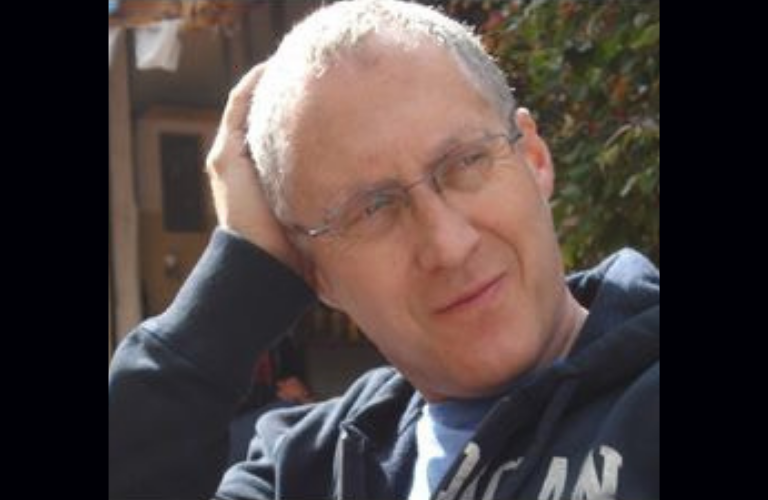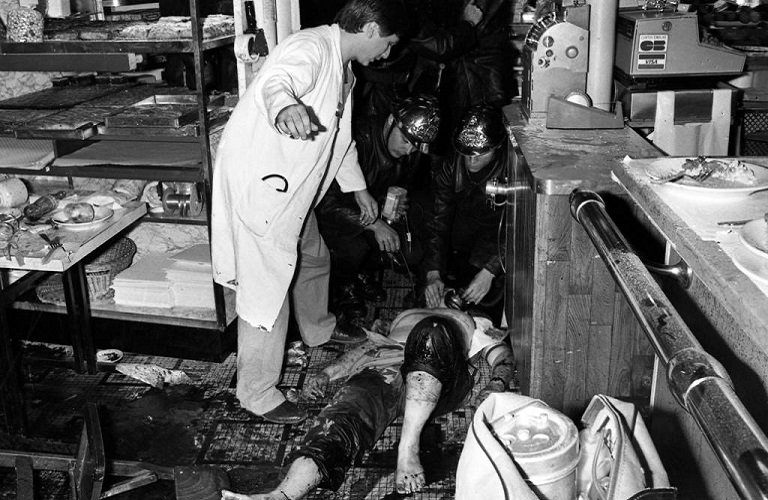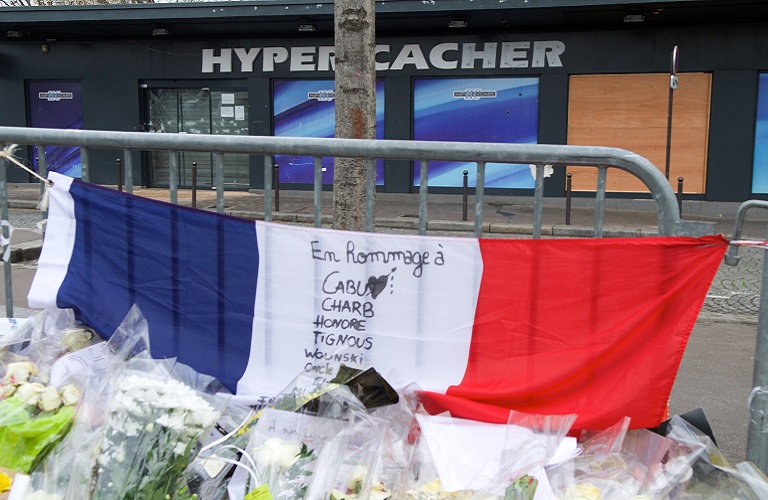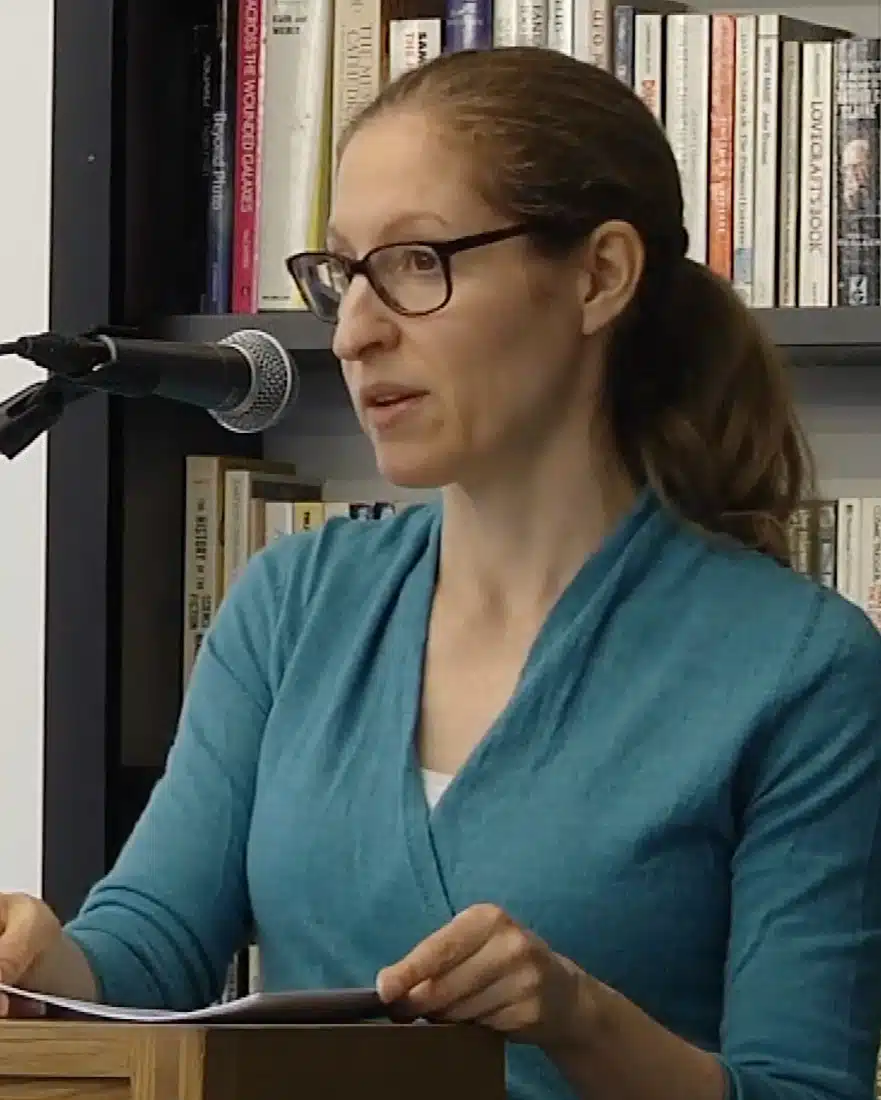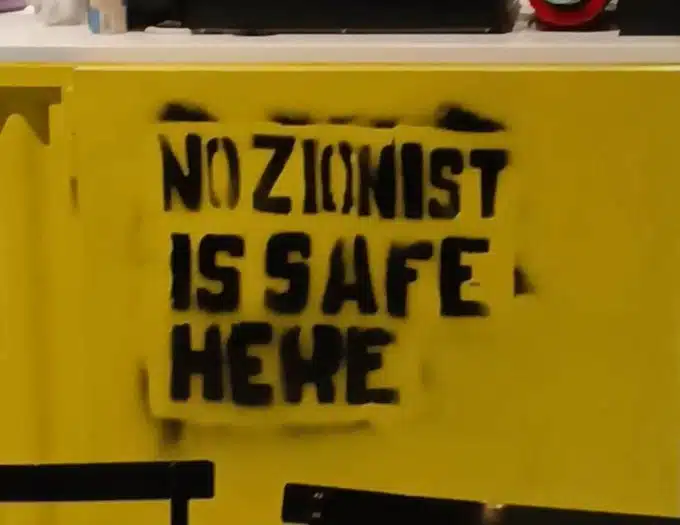
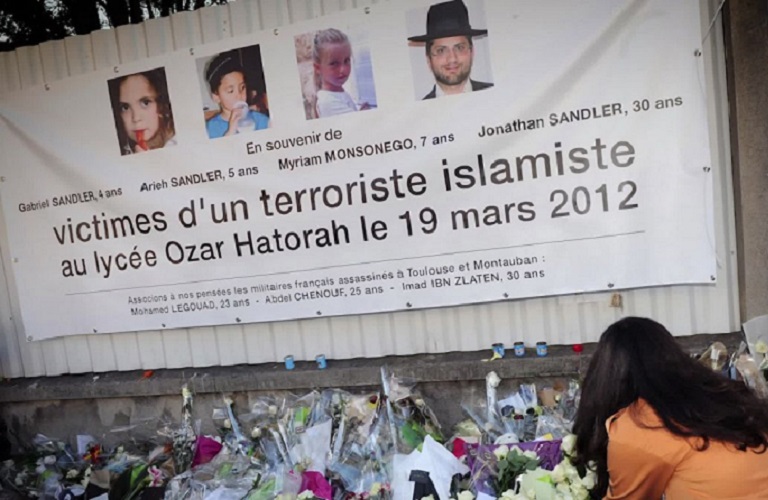
Interview: Historian Marc Knobel on Radical Islamist anti-Semitism in France
In France, Islamist radicalism plagues both the Jewish community and the population at-large. Over the last decade, thousands of French civilians have been killed at the hands of Islamist terrorism. Too often, however, we overlook the Jewish victims of this violence. For example, the widely-publicized Charlie Hebdo killings in January 2015 in Paris were followed by the lesser-noted anti-Semitic murders of four people at a kosher supermarket nearby. To help us broach the harrowing issue of Islamist anti-Semitism, Tamara Berens at CAM spoke to preeminent historian Marc Knobel.
An essayist, former professor, rapporteur to the French Commission on Human Rights, and research associate at the Simon Wiesenhal Center in Paris, Knobel is also the director of research at the CRIF, the representative council of Jewish institutions in France. Knobel’s forthcoming book is “Cyberhaine: Antisemitism and Propaganda on the Net” with Hermann editions (Paris.) He is widely published in French general interest and Jewish publications on the topics of anti-Semitism, Islamism, neo-Nazism, and fundamentalism.
Tamara Berens: How would you describe the problem of Islamist terrorism in France?
Marc Knobel: France is under attack on its own soil. Attacks perpetrated by jihadist movements have left our country in mourning. Furthermore, our interests abroad have been threatened. The most recent attacks demonstrate beyond any doubt that France remains a permanent and principal target of international jihadism.
While terrorism strikes other European countries, such as Germany, Belgium, Spain, and Great Britain—and Muslim countries, such as Afghanistan, Iraq, and Somalia—jihadist terrorism in France is of a different magnitude.
Jihadists attack our most prominent symbols; the things that represent and characterize us. These are: secularism, freedom of expression, and the right to blasphemy, which is not illegal in France.
Tamara Berens: How has terrorism in France targeted the Jewish community?
Marc Knobel: Over the past forty years, multiple anti-Semitic attacks have occurred in France. For example, on October 3rd, 1980, a bomb exploded in front of the synagogue on Rue Copernic in Paris. Four were killed and around 20 wounded. Another example: on August 9, 1982, a group of terrorists opened fire on the Rue des Rosiers in Paris and threw grenades inside the Goldenberg Jewish restaurant. Six were killed and 22 wounded.
These attacks were linked to a particular geopolitical context and to the Israeli-Palestinian conflict. They were perpetrated by [secular] Palestinian or pro-Palestinian terrorist organizations such as Black September.
However, things have since changed. More recently, anti-Semitic attacks have been perpetrated by individuals linked to jihadist movements.
Tamara Berens: How does jihadist anti-Semitism manifest online?
Marc Knobel: On the Internet, preachers systematically name the enemy as Israel and the Jews.
For example, Sheikh al-Qardaoui, a leading figure in the Muslim world, explains in Arabic, in a video obtained by the French intelligence services on YouTube, that “Allah regularly punishes the Jews for their corruption;” Hitler, with “everything he did to them” and, although “it was very exaggerated by the Jews,” managed to “put them in their place .” “It is a divine punishment (…) if Allah wants, the next time it will be with the hands of the Muslims.”
In an online text that inverts personal responsibility and presents jihad as a legitimate form of self-defense, Salafist preacher Sulayman al-Uwan writes that: “As long as the enemies of Allah place their elbows on the throats of Muslims and terrorize their children and elderly people…So it is obligatory for all those that are capable to fight them, to avenge their blood and wage jihad against them until the total liberation of Palestine and all Muslim lands.”
Tamara Berens: Can you describe some of the attacks that have most impacted France’s Jews?
On Monday, March 19, 2012, students at the Ozar Hatorah Jewish school in Toulouse were getting ready to start class. A man wearing a helmet parked his motorbike and, walking calmly, pulled out a gun and opened fire on a group of people gathered in front of the school. Jonathan Sandler, a 30-year old teacher in this school, was wounded in the belly. He collapsed at the feet of his son Arieh (5 years old), also fatally shot. The killer then took a few steps in the courtyard and opened fire again. The daughter of the school principal, Myriam Monsonego (7 years old), tried to escape. She only took a few steps before she was shot in the back. The killer then shot little Gabriel Sandler (4 years old). Then, the killer came back towards Myriam, grabbed her ferociously by the hair and shot her in the head, before fleeing on his motorbike.
The killer told police during his escape: “I had a message to give […]. I killed Jewish children because my little brothers, my little Muslim sisters are being killed. So I knew that by killing only military people, Jews, the message would get across more effectively. Because if I had killed civilians, the French population would have said that, uh well, he’s an Al Qaeda madman, he’s just a terrorist, he kills civilians. Even though I have the right, but the message is different […]. I kill Jews in France because those same Jews … uh kill innocent people in Palestine.”
A second example: At around 1 p.m. on January 9, 2015, a shooting suddenly broke out at the Hypercacher kosher supermarket in Porte de Vincennes (in Eastern Paris) on the eve of Shabbat, just as the store was crowded. The gunshots echoed and could be heard throughout the neighborhood. The terrorist shot three people in one go and killed a fourth later. He took 17 other people hostage.
These two examples illustrate the extent to which French Jews are significant targets of Jihadism and radical Islamism.
Terrorists want to spread chaos and divide our country. They know that these attacks provoke shock and anger among the French. Could this anger one day be turned against Muslims? (Between six and seven million Muslims live in France.) Uncertainties abound. Fortunately, despite the attacks, resilience prevails. “There is a capacity for resilience, not only of individuals, but also an institutional, legislative, judicial, police and citizen resilience, which ISIS probably underestimated,” says Frédéric Esposito, the director of the French Security Observatory.
Tamara Berens: In France, alliances have formed between some Islamist groups and extreme-left organizations. Does this phenomenon encourage anti-Semitism?
Marc Knobel: Several movements on the left or far-left have made hatred of Israel a staple. On the far-left, in social media, the Palestinian cause is viewed by various activists as an extension of anti-colonialism. Palestinians are perceived as victims; deserted even by their Arab brothers. Zionism is perceived as the contemporary expression of Western aspirations to dominate the heart of the Islamic and Arab world, as demonstrated by the work of French philosopher Pierre-André Taguieff. Hence, anti-Semitism may develop alongside the systematic denunciation of the State of Israel as an imperialist, colonialist entity.
In certain European countries, left-wing militants believe that Muslims as a group are left behind, discriminated against, and persecuted. These militants claim that France is a neocolonial, racist, xenophobic, and Islamophobic country. Some far-left militants even argue for a connection with the Muslim Brotherhood. They perceive any denunciation of radical Islamism as a criticism of Islam as a whole.
Lastly, electoral considerations inspire certain politicians, demagogues, and populists to condone anti-Semitism. They know that it is necessary to attract young people from the suburbs to strengthen their electoral base and win in some districts.
Tamara Berens: Following the recent terrorist attacks in France, including the beheading of middle school teacher Samuel Paty on October 16th, the world is paying attention to the issue of Islamist terrorism in the country. What is France doing to deal with the problem?
Marc Knobel: Since August 2014, France has been engaged militarily in an extremely vast area, including at least five countries in the Sahel and the Sahara: Mauritania, Mali, Burkina Faso, Niger, and Chad. Why? The states in the Sahel are facing serious daily economic, health and military difficulties. They are embroiled in terrorism and ethnic violence. With its various allies, the French army is therefore conducting military operations against terrorist bases linked to Al Qaeda in the Islamic Maghreb. The operations eliminate terrorists, such as Bah Ag Moussa, one of the main figures in the jihadist movement in Mali, who was killed by French forces on November 10, 2020, and to shut down the logistical axes of ISIS in the Great Sahara. At the same time, France is fighting terrorism on several other fronts in Syria and Iraq. In addition, France is fighting financial, human, logistical and terrorist propaganda networks, both abroad and in France.
Since the attacks of November 13, 2015, France has been in a domestic state of emergency. The state of emergency has been extended several times by successive governments. While it has prevented several attacks, it cannot be a lasting solution to the current terrorist threat. Therefore, the President of the Republic, Emmanuel Macron, promulgated a new law strengthening internal security and the fight against terrorism. This involves establishing protective perimeters to ensure the security of major events or particularly vulnerable places; closing certain places of worship under the authority of the administrative judge; implementing administrative controls and individual surveillance measures; and ordering, after authorization from the judge of liberty and detention, access to any place, for the sole purpose of preventing terrorism. To ensure the security of the citizens of France, the government is also willing to utilize the law to order the closure of associations or groups that participate in, facilitate or encourage the perpetration of acts that seriously undermine public order.
Tamara Berens: In 2015, you published “Indifference to Hatred”, a book which reveals the “banality of hate” in France. Five years later, has indifference to hatred worsened?
Marc Knobel: There were and are those who watch the tragedies that take place on our doorsteps, our beaches, our borders, and in the world with indifference. I am convinced that if there is a permanent fight against hatred, there must be in France and in the world a permanent fight against indifference.
In France it is no longer possible to keep one’s eyes closed. The French feel threatened. They are threatened inside and outside our borders by this sprawling octopus with various ramifications. Islamism operates in ways that terrorize our fellow citizens, shun our public freedoms, endanger national cohesion, and divide the population. French Jews are also threatened, targeted, pointed at, and attacked. It is the Republic itself that is threatened by Islamism—its principles, values, and culture. What threatens the Republic and its values also threatens the Jews of France and beyond.
read more
Join Our Newsletter
Free to Your Inbox
"*" indicates required fields

